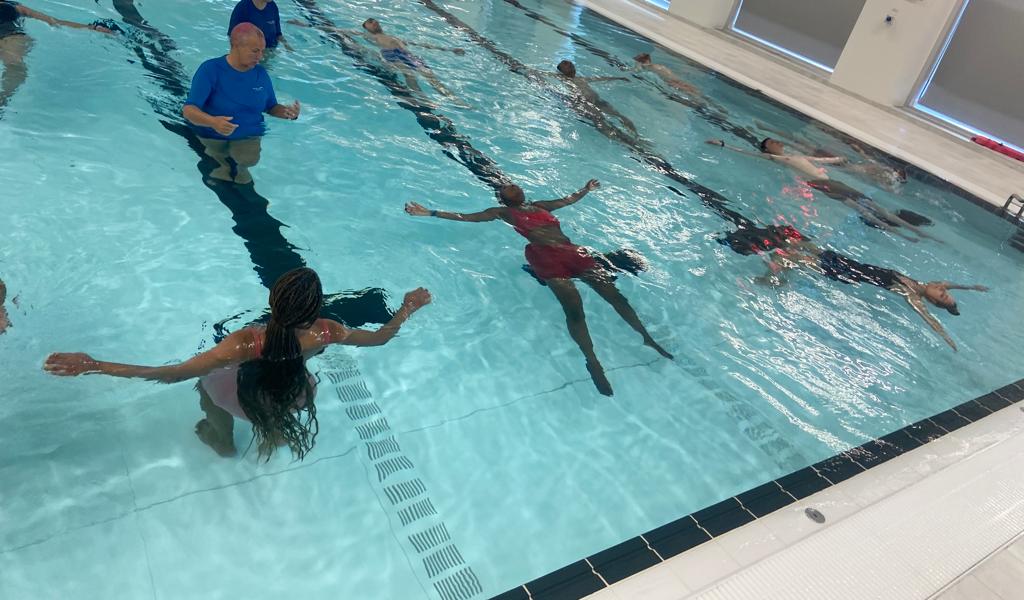“People forget that all people share two things… we’re all made up of about 60% water and we’re all grown and born from water.” They’re common facts, but when Jo Melchior recounts them to our team of Coach Mentors in a swimming pool in Hackney, they hold even greater impact. As part of our training week, Jo has volunteered her time to teach our team about water safety. Jo is Head of Programmes at The Black Swimming Association (BSA), and has 45-years of experience, so there’s nobody better to lead the session.
The BSA actively promotes that, ‘Water is about connection, and we need to make sure young people fully understand the benefits and risks.’ Over the past few years, our charity’s programme residentials have seen an increase in water sports activities. White water rafting, kayaking, and paddle boarding are just a few of the sports that we have been able to introduce our young people to. Considering that 1 in 4 young people leave school unable to swim, our charity recognises the importance of understanding water safety, regardless of their being lifeguards and water experts on every residential trip.
As she leads the session, Jo focuses attention on teaching the fundamental safety strategies around drowning prevention. “The BSA are not delivering learn to swim programmes, we focus on enabling people to connect and find their unique relationship with water and be empowered to know how to stay safe in and around the water.”
With the recent influx of hot summers, romanticisation of open water swimming and lasting effects of Covid stopping swimming lessons, it’s more important than ever to educate young people on water safety. Young Adults 15 – 19 are the 2nd highest fatal drowning rate out of any age group, with 82% of total drowning victims identifying as male.
To counteract these terrifying statistics the BSA teaches the Water Safety Codes fundamental survival skills; Stop And Think, Stay Together, Call 999 and Float to Live. All of these are ways of counteracting the effects of Cold Water Shock. By learning these drowning prevention techniques, our Coach Mentors can start introducing them to our young people in sports sessions and any water activities. Jo ends the session saying: “We need these survival skills to catch fire so that every child and young person is taught this.” Hopefully in the not-so-distant future every young person will access these basic survival skills and our open water spaces will be even safer for our communities.

